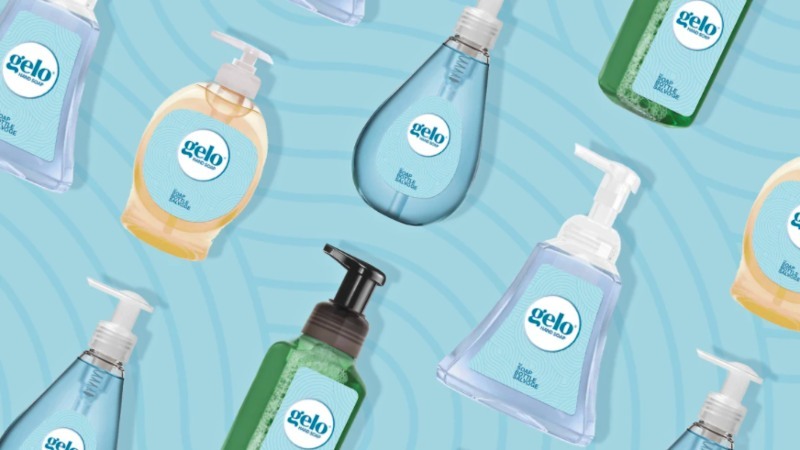
2021-03-15 00:00:00
Label for importing cosmetics into the United States
The last step for exporting cosmetics to the United States is the label review
https://www.exportusa.eu/cosmetics_label.php (+1) 718-5225575
(+1) 718-5225575

In the US new ethical business models are popping up which are against single-use packaging in an effort to make the “zero waste” dream come true. The world of the future is one that’s more conscientious, in which avant-garde brands like Gelo challenge old market logic and don’t fear competition, but rather exploit it to their advantage. In fact, for the refills of its hand soap, Gelo uses not only its own plastic bottles (which are obviously environmentally sustainable), but also the (used) ones of other brands, which it collects from dumpsters and from its own customers. The objective is to prolong the life cycle of the bottles and design “no waste” products.
After having carefully analyzed the category of hand soaps present in the US market, Curan Mehra realized that there was a wide margin for innovation and improvement in this segment. What he couldn’t have known, however, is that a global pandemic would catapult his brand, Gelo, into becoming a best seller with a turnover of $10 million in just under a year. Developed with the concept of eliminating excess waste, the brand was launched in the US in April 2020 with an unbreakable bottle made from recycled plastic and a concentrated soap in single-portion pods that dissolve in water, available in both liquid and foam versions depending on one’s personal preference. A starter kit with four refills costs $7, about half of what comparable products on the market in the US sell for.
In recent years various American companies have converted to a more sustainable and reusable format in an effort to reduce the volume of waste and the environmental impact of plastic bottles. But in America, most of these products are put on the market with a “green tax” that increases their price (not by a little) and has proven to be the main reason that these consumer goods (the consumption of which has skyrocketed during Covid) have not become part of American consumers’ daily cleansing routines. Until Gelo designed an innovative eco-refill that adapts to all dispensers and costs less. While the basic starter kit includes the company’s own branded bottle which can be reused over and over again, the true novelty in Gelo’s launch was the “Soap Bottle Salvage” kit which includes an irreverent extra: a reused bottle of another brand of soap, like Method or Softsoap, for example. This isn’t a cross-branding partnership. Gelo confirms that it has recovered these bottles from dumpsters or from customers who would have otherwise thrown them away, with the objective of giving them a second life as dispensers for refills.
This new zero-impact solution is offered to consumers with the following formula: a recovered plastic bottle, a bag with five Gelo refill pods (foam or liquid), and a customized Gelo label to be applied to the various bottles. With a non-plus-ultra: “the joy of knowing that you’ve salvaged a plastic bottle from a landfill”, as the slogan on the package and website reads. “Part of Gelo’s DNA is about promoting reuse and refill as an alternative to buying new plastic,” states Curan Mehra, CEO and founder of Gelo. For the first time “universal” ecological refills have been designed, which can be inserted either in their own Gelo dispenser, or in any other liquid soap dispenser with a pump. The “Soap Bottle Salvage” kit, created in collaboration with the Mischief @ No Fixed Address creative agency, has demonstrated this. “There’s no reason to throw out stuff that’s good,” stated Mehra. “At first we put together about 800 “Soap Bottle Salvage” kits with bottles recovered from friends and family and a little bit of ‘dumpster diving’ in Midtown Manhattan,” stated Mehra. The “Soap Bottle Salvage” kits are currently sold out and are likely a limited run. Mehra says that there’s no need to offer a collection and shipping service for salvaged bottles because consumers already have their own to reuse. Furthermore, the extra carbon cost of shipping them is not an ecologically compatible choice in the long run. The brand prefers to be a proponent for a policy of circular economy, generating benefits in the region. At the moment it is, in fact, in negotiations to collaborate with several local plastic recycling facilities. The company is also negotiating a commercial deal with several retailers to launch promotions in which clients are invited to bring their old empty bottles to the store in exchange for a Gelo product.
Gelo says that it has already helped to recover more than 1 million plastic bottles from landfills since the brand’s launch last year. Single-use plastic bottles of hand soap contribute to the overall problem with plastic: recycling. In 2016, 396 million metric tons of plastic were produced, the vast majority of which did not get recycled. (This issue is increasingly being taken into consideration by many brands in America, which are working hard to come up with new solutions. Method, for example, has a line of plastic bottles that have been recovered from the ocean.) By removing both the bottle and the water from its product, Gelo aims to reduce the CO2 emissions generated not only during the manufacturing process, but also during shipping. On the one hand, the ecological refills dissolve completely in water, reducing the environmental impact by 97% (which corresponds to the volume of waste produced by the packaging that would otherwise be used). On the other, according to the company, shipping only refills cuts transport emissions by 93% as compared to the equivalent volume of hand soap in single-use bottles. Furthermore, consumers are also encouraged to reuse the empty bottles of hand soap that they’ve already purchased, and even have the option of printing a Gelo label online, if they want, to stick to the other brand’s bottle. “Whether you do or not,” says Mehra, “the idea is to look at that (green) packaging as something that has more than just a single life.”
“The other fundamental element is the quality of the product. What we put in the pod is important to us, especially because people wash their hands multiple times per day.” Mehra says that all of the ingredients have been dermatologically tested in order to ensure that they are appropriate for sensitive skin and that the soothing essential oils provide a comforting experience. Gelo is currently sold in more than 1,000 stores across the United States, including Meijer, HEB, Hannaford, Save Mart, Foodmaxx, Lucky, United Grocers, and Urban Outfitters. The company is privately financed.
The new packaging challenge in the United States is to add a “no waste” objective for safeguarding the environment, with the “green” industry producing more and more products for daily use (not just beauty products) that didn’t exist before. Thus more and more innovative projects in the refill segment are being developed, among which the circular refill-delivery system Loop, created by a student at Princeton University who founded the company Terra Cycle. Loop delivers requested products to people’s homes, in refillable aluminum or glass containers, and also collects, washes, sterilizes, and refills the empties and delivers the new order right to customers’ doorsteps.

The last step for exporting cosmetics to the United States is the label review
https://www.exportusa.eu/cosmetics_label.php